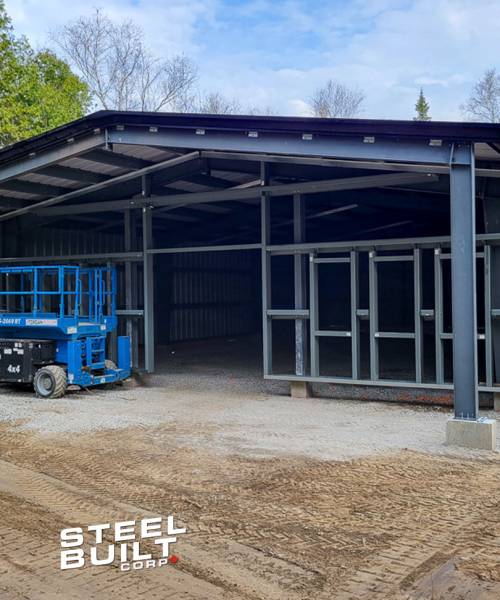
Metal workshops are indispensable spaces where creativity meets craftsmanship. These specialized environments provide artisans, hobbyists, and professionals with the tools, equipment, and space necessary to bring their metalworking visions to life. From welding and machining to forging and casting, metal workshops facilitate a wide range of metalworking techniques and applications. In this article, we’ll delve into the significance, features, and benefits of metal workshops, highlighting their essential role in fostering creativity, skill development, and productivity.
Understanding Metal Workshops
Metal workshops, also known as metal fabrication shops or metalworking studios, are dedicated spaces designed for working with various metals such as steel, aluminum, copper, and brass. These workshops are equipped with a range of tools, machinery, and utilities required for cutting, shaping, welding, and finishing metal components. Whether for professional use or personal projects, metal workshops provide the environment and resources needed to perform intricate and precise metal fabrication work.
Features of Metal Workshops
Essential Tools and Equipment
Metal workshops are equipped with a variety of tools and equipment essential for metalworking tasks. These may include:
- Welding Machines: For joining metal parts through various welding techniques such as MIG, TIG, and arc welding.
- Plasma Cutters: For cutting metal with precision and speed.
- Band Saws and Grinders: For cutting and finishing metal edges and surfaces.
- Drill Presses and Lathes: For drilling holes and machining metal parts to precise dimensions.
- CNC Machining Centers: For automated and highly accurate metal fabrication.
The availability of these specialized tools allows craftsmen to perform a wide range of metalworking tasks efficiently and effectively.
Workbenches and Workstations
Workbenches and workstations are critical components of metal workshops, providing dedicated spaces for assembling, welding, and finishing metal components. These workstations are typically equipped with vises, clamps, and storage drawers to hold tools, materials, and workpieces securely during fabrication processes. Ergonomically designed workbenches enhance productivity and comfort, allowing craftsmen to focus on their projects.
Ventilation and Safety Measures
Metal workshops prioritize safety and ventilation to ensure a safe and comfortable working environment. Adequate ventilation systems are installed to remove fumes, dust, and airborne particles generated during metalworking processes. Additionally, safety measures such as personal protective equipment (PPE), fire extinguishers, first aid kits, and emergency exits are provided to mitigate risks and ensure the well-being of workshop users.
Storage and Organization
Efficient storage and organization systems are implemented in metal workshops to keep tools, materials, and equipment organized and easily accessible. Storage racks, cabinets, and shelving units are utilized to store raw materials, finished products, and consumable supplies, optimizing workflow and minimizing clutter in the workspace.
Benefits of Metal Workshops
Creativity and Innovation
Metal workshops serve as incubators for creativity and innovation, providing individuals with the space and resources to experiment with new ideas, techniques, and designs. Craftsmen can explore their creativity, develop new skills, and push the boundaries of metalworking to create unique and innovative products.
Skill Development
Metal workshops are ideal environments for skill development, offering hands-on experience with various metalworking techniques and tools. Whether for beginners learning the basics or experienced professionals honing their craft, metal workshops provide opportunities for continuous learning and improvement.
Productivity and Efficiency
Well-equipped metal workshops enhance productivity and efficiency by providing the necessary tools and infrastructure for streamlined operations. The functional layout, ample workspace, and specialized equipment enable craftsmen to complete projects quickly and accurately, optimizing workflow and output.
Applications of Metal Workshops
Custom Metal Projects
Metal workshops cater to custom metal projects across various industries, including automotive, aerospace, construction, and furniture manufacturing. Craftsmen collaborate with clients to design and fabricate custom metal components, prototypes, and products tailored to specific requirements and specifications.
Artistic Metalwork
Metal workshops serve as creative spaces for artists and sculptors to create intricate metal sculptures, installations, and artworks. Metalworking techniques such as forging, casting, and engraving are employed to transform raw metal into captivating pieces of art that evoke emotion and inspire creativity.
Repair and Maintenance
Metal workshops are essential for repair and maintenance tasks, providing the tools and equipment needed to fix and restore metal components and machinery. From automotive repairs to industrial equipment maintenance, metal workshops ensure the longevity and functionality of metal products.
Conclusion
Metal workshops play a vital role in fostering creativity, innovation, and craftsmanship in the realm of metalworking. With their essential tools, equipment, and dedicated spaces, metal workshops provide artisans, craftsmen, and hobbyists with the means to bring their metalworking visions to life. Whether used for custom projects, artistic expression, or repair and maintenance tasks, metal workshops serve as hubs of creativity and excellence, shaping the future of metalworking and inspiring generations of metalworkers to come.
